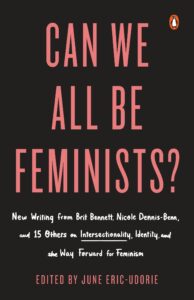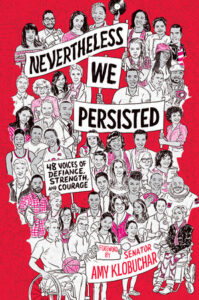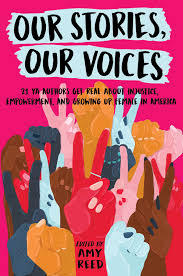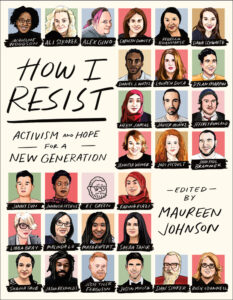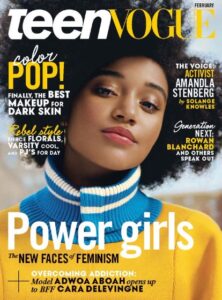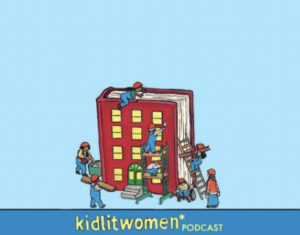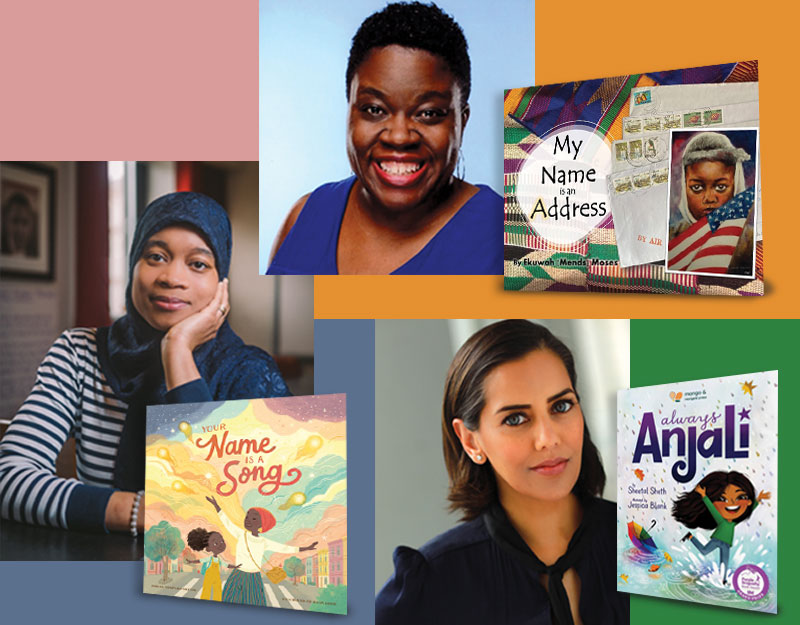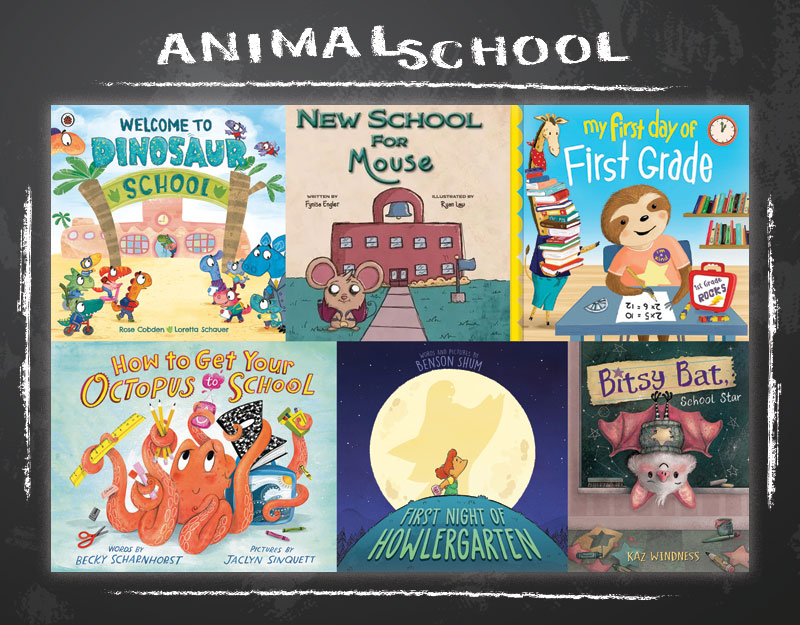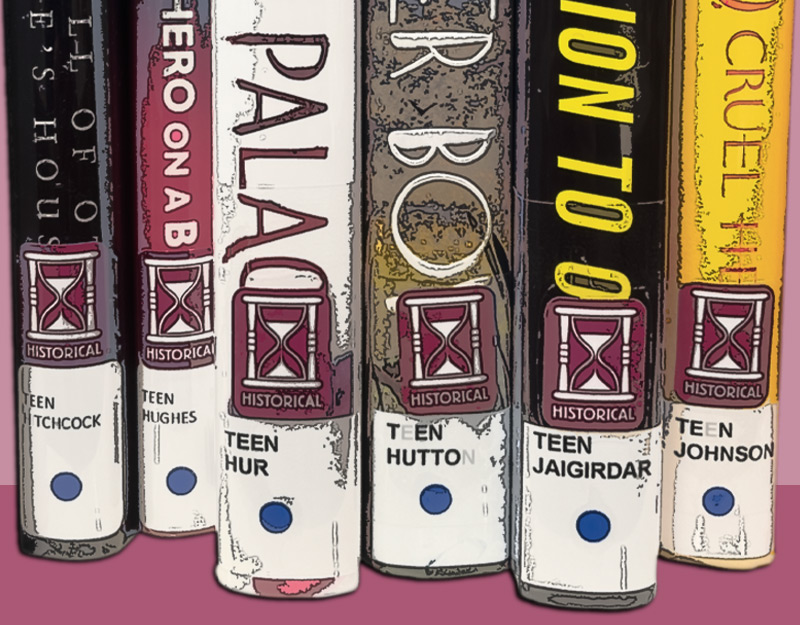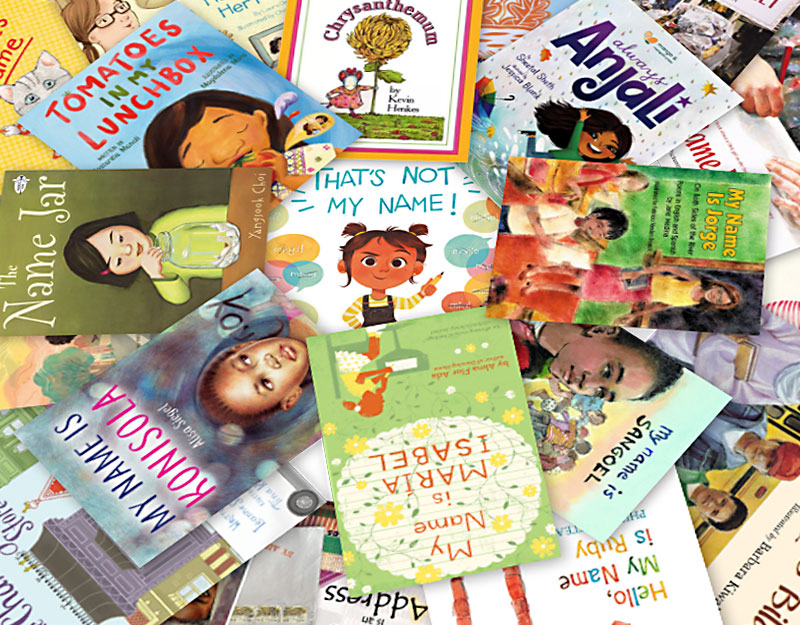#ReadForChange: Women Conquer and Dragons Slay in Elana K. Arnold’s Damsel
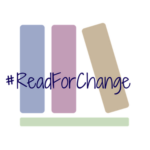 Teen Librarian Toolbox is excited to be partnering with Marie Marquardt for her #ReadForChange project. Hop on over to this post to learn more about the initiative. Today, she and Elana K. Arnold join us for a conversation about fairy tales, rage, feminism, and Arnold’s 2018 book Damsel.
Teen Librarian Toolbox is excited to be partnering with Marie Marquardt for her #ReadForChange project. Hop on over to this post to learn more about the initiative. Today, she and Elana K. Arnold join us for a conversation about fairy tales, rage, feminism, and Arnold’s 2018 book Damsel.
I’m always irritated by people who imply that writing fiction is an escape from reality. It is a plunge into reality, and it’s very shocking to the system.”
– Flannery O’Connor, Mystery and Manners: Occasional Prose
Shocking the System with Damsels, Dragons, and Dashing Princes
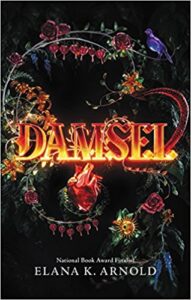 This month’s #ReadForChange is the first fantasy/ fairy tale I’ve chosen to feature. I know some of you readers out there might be wondering: How can the re-cast fairy tale of a fierce dragon, a conquering prince, and a “damsel” (that he, um, rescues?) plunge right into the heart of contemporary issues? If you’re one of those people wondering, then you haven’t yet had the chance to read Elana K. Arnold’s captivating novel, Damsel.
This month’s #ReadForChange is the first fantasy/ fairy tale I’ve chosen to feature. I know some of you readers out there might be wondering: How can the re-cast fairy tale of a fierce dragon, a conquering prince, and a “damsel” (that he, um, rescues?) plunge right into the heart of contemporary issues? If you’re one of those people wondering, then you haven’t yet had the chance to read Elana K. Arnold’s captivating novel, Damsel.
ADVERTISEMENT
ADVERTISEMENT
In Damsel, Elana returns us to the classic legends, found across many cultural traditions, of dragons in their lairs, protecting their most precious possessions, of privileged men living into their society’s expectations that they become conquerors, and of “damsels” – seemingly defenseless, often distressed, and appearing to be in need of rescue. I won’t ruin your experience of reading the story by sharing Damsel’s astonishing twists and turns. Suffice it to say that Elana works wonders with this classic tale, reshaping it into a powerful feminist narrative perfectly suited to our time.
I’ll offer only one example of the story’s contemporary relevance: Shortly after she’s been “rescued” by the dashing price, Ama, the story’s protagonist, takes a wild lynx kitten as a pet. Her prince has murdered the kitten’s mother, ostensibly to (again) rescue Ama. Ama feels both a responsibility for and a strange kinship with the orphaned wild animal. She names the lynx “Sorrow.” Although Sorrow longs to return to the wild, the kitten stays by Ama’s side as Ama moves into the prince’s castle and begins preparations to marry him. (Needless to say, no one has bothered to ask Ama whether she actually wants to marry the prince.) Shortly before the story comes to its shocking close, Ama decides to release Sorrow back into the wild, telling the now-grown cat: “Sorrow is no more your name. Now I call you Fury.”
In recent weeks, I’ve seen so many women – women who have, like Ama, felt trapped, confused, and overwhelmed – shift from Sorrow to Fury. Elena Arnold’s legendary tale of a dragon, a damsel, and a dashing prince might be just the story we need for motivation to transform that fury into action.
Before we move on: Here’s one action for all of you Readers-For-Change: if you’re over 18, please VOTE on November 6. If you’re under 18, I hope to bump into you out there on the streets, drumming up support for our favorite candidates!
“The creative water that filled my well was… rage.”: An Interview with Elana K. Arnold
 MARIE: There’s no doubt that Damsel is a novel with a powerful feminist message – one well-suited to our time. What made you decide to write such a bold, unflinching story of men abusing their power, and of abused women recovering their own power?
MARIE: There’s no doubt that Damsel is a novel with a powerful feminist message – one well-suited to our time. What made you decide to write such a bold, unflinching story of men abusing their power, and of abused women recovering their own power?
ELANA: Damsel, I think, is a natural extension of the work of my previous two novels, What Girls Are Made Of and Infandous, both of which deal with embodied female shame. I found, after working on those two books for close to five years, that the process of writing them was a cathartic means of healing myself from the shame I’d felt all my life—the shame of my body, the ways in which I’d fit myself into a form I felt was expected of me. What was left, when the shame was gone, was this clear, pure rage. That rage is what I drew from when writing Damsel. As a writer, I work with what I have, what I’ve been filled up with, what my personal experiences have been. In the past, the creative water that filled my well was shame, and so that was what I worked from. This time, it was rage—propelled by my own lived experience.
MARIE: I have to admit, the fairy tale trope of the prince “rescuing” the damsel seems an odd place to begin a feminist tale. What compelled you to return to the classic legends of dragons, damsels, and dashing princes?
ELANA: Traditionally, fairy tales have been written by men who shaped the stories into commodities that could be sold, products that centered female bodies as consumable objects, morality lessons, and prizes to be won. These are the stories many of us were raised on, so they were some of the material that formed me. Revisiting them and reflecting on how they might be re-formed by centering the effects of making women into prizes rather than leaving the stories when the women are “won” felt like a meaty and interesting challenge.
MARIE: How do your concerns about such issues as abuse, toxic masculinity and a culture of conquest shape your actions in the real world? What actions are you taking to create the world you want to live in?
ELANA: My concerns about the issues you named shape all my actions. They inform the way I vote, the causes to which I donate time and money, the way I raise my children, how I have committed to speaking up in situations that feel unsafe to myself or others. I hope that my creative work helps give readers language for their lived experiences; by writing an alternate version of the damsel’s journey, maybe my work will light a fire in those who have felt powerless.
MARIE: I know that it will! For readers whose fires have been lit, what’s your advice?
ADVERTISEMENT
ADVERTISEMENT
ELANA: Don’t wait for later. You don’t need to wait for permission to make a change. In many states, you can pre-register to vote up to two years before you’re old enough to cast your first ballot. You can learn more here.
Come up with a plan. Many of us, when faced with scary situations, freeze up and do nothing, or “play possum,” just waiting for the bad thing to go away. But if you can decide ahead of time what your script will be in, for example, a situation in which you see someone acting in a racist or sexist manner, then you are more likely to do something.
“Wonderful, wise, work:” Elana’s excellent recommendations for learning more.
“There is so much wonderful, wise work being done, and there are many amazing resources.” Here are a few books Elana recommends:
Can We All Be Feminists? New Writing from Brit Bennett, Nicole Dennis-Benn, and 15 Others on Intersectionality, Identity, and the Way Forward for Feminism, edited by June Eric-Udorie
Nevertheless, We Persisted: 48 Voices of Defiance, Strength, and Courage (With a forward by Amy Klobuchar)
Our Stories, Our Voices: 21 YA Authors Get Real About Injustice, Empowerment, and Growing Up Female in America, Edited by Amy Reed
How I Resist: Activism and Hope for a New Generation, Edited by Maureen Johnson
Elana’s also a fan of the work Teen Vogue is doing. Check it out here.
And, there’s a wonderful podcast called KidLit Women that she’s actively following.
Want to take action? Need to reach out for help? Elana has some suggestions.
Elana’s an active donor to Planned Parenthood. You can learn more about their work here.
DAMSEL deals with issues of sexual assault, rape culture, and gaslighting. Elana recommends RAINN as a wonderful resource if you need help.
Win a copy of Damsel, fiery hot off the presses!
This new release is such a great read, and it will get you fired up to take action! Here’s a link to the giveaway. We’ll be announcing the winner on Twitter @MarieFMarquardt and Instagram marie_marquardt November 1!
Meet Marie Marquardt
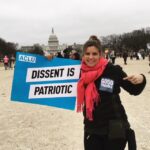
Marie Marquardt is the author of three YA novels: The Radius of Us, Dream Things True, and Flight Season. A Scholar-in-Residence at Emory University’s Candler School of Theology, Marie also has published several articles and co-authored two non-fiction books about Latin American immigration to the U.S. South. She is chair of El Refugio, a non-profit that serves detained immigrants and their families. She lives with her spouse, four kids, a dog and a bearded dragon in the book-lover’s mecca of Decatur, Georgia.
Filed under: Guest Post
About Amanda MacGregor
Amanda MacGregor works in an elementary library, loves dogs, and can be found on Twitter @CiteSomething.
ADVERTISEMENT
ADVERTISEMENT
SLJ Blog Network
Name That LEGO Book Cover! (#53)
Cover Reveal and Q&A: The One and Only Googoosh with Azadeh Westergaard
Exclusive: Vol. 2 of The Weirn Books Is Coming in October | News
Fighting Public School Book Bans with the Civil Rights Act
ADVERTISEMENT


